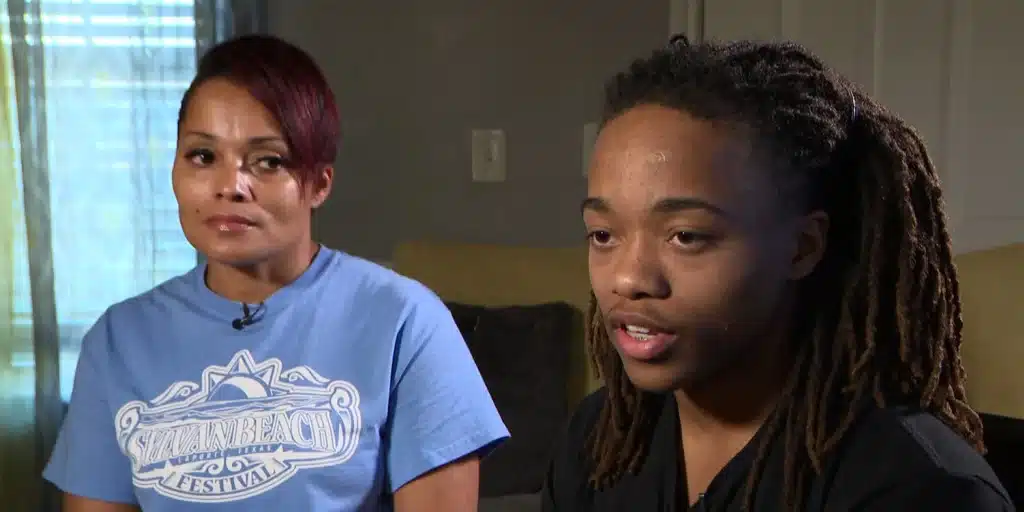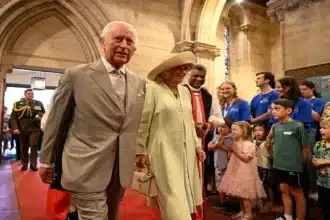In a significant legal battle centered around the rights of students to express their cultural heritage through their hairstyles, Darryl George, a junior at Barbers Hill High School in Mont Belvieu, Texas, finds himself at the heart of a controversy that challenges the intersection of school dress codes, racial discrimination, and legal protections under the newly implemented CROWN Act. Located about 30 miles from Houston, Barbers Hill High School has placed George in in-school suspension or an off-site disciplinary program for the majority of the school year, citing a violation of the district’s dress code which regulates the length of boys’ hair. George’s dreadlocks, worn neatly on top of his head and away from his face and neck, have been deemed by the school officials as non-compliant with the policy that male students’ hair cannot extend past the eyebrows or ear lobes.
The response to George’s steadfast refusal to alter his hairstyle has sparked a wave of support from the public, with many sending letters and messages of encouragement. This support has been crucial for George, who has expressed his determination to continue fighting against what he perceives as an injustice. “This fight has been a struggle on me, but with their words, it keeps me pushing,” George communicated through his family’s attorney, Allie Booker.
The core of the dispute lies in the interpretation and application of Texas’ CROWN Act, which was signed into law by Governor Greg Abbott in May. The Act prohibits race-based hair discrimination in work, school, and housing facilities, explicitly protecting hairstyles like braids, locks, and twists, commonly associated with racial identity. However, school officials argue that the law does not address hair length, a stance that has led the district to request legal clarification through a lawsuit filed in September. The case is set to go to trial under the jurisdiction of State District Judge Chap Cain III in Anahuac.
Also Read: EU Nations’ Red Alert: Stop Israel’s Rafah Offensive
Superintendent Greg Poole of the Barbers Hill Independent School District has defended the school’s policy, stating that the Texas CROWN Act is not a blanket allowance for student expression and looks forward to the legal resolution of the issue. Conversely, the lawmakers who co-wrote the Texas CROWN Act contend that the law was indeed intended to protect hairstyles like George’s, highlighting a significant disconnect between the school’s interpretation and the legislative intent behind the Act.
George’s family has taken multiple steps to fight back against what they view as discriminatory practices, including filing a formal complaint with the Texas Education Agency and a civil rights lawsuit against Governor Abbott and state attorney general Ken Paxton for allegedly failing to enforce the CROWN Act. “I have a son, 18 years old, that wants to go to school, that wants to get his education, and y’all messing with him. Why?” expressed Darresha George, Darryl’s mother, emphasizing the personal toll the situation has taken on their family.
This is not the first time Barbers Hill High School has faced legal challenges over its hair policies. In 2020, two students filed lawsuits after being suspended over the length of their dreadlocks, one of whom, DeAndre Arnold, received national attention and support from celebrities and public figures for his plight.
Also Read: WFP Halts Food Aid to Northern Gaza Amid Escalating Conflict: Impact & Solutions
As the legal proceedings unfold, the case of Darryl George not only questions the applicability and enforcement of the CROWN Act but also ignites a broader conversation about cultural expression, racial discrimination, and the rights of students to remain true to their identities within educational institutions. The outcome of this trial could set a precedent for how schools across Texas and beyond navigate the balance between dress code policies and anti-discrimination laws, potentially leading to more inclusive and respectful environments for all students.




